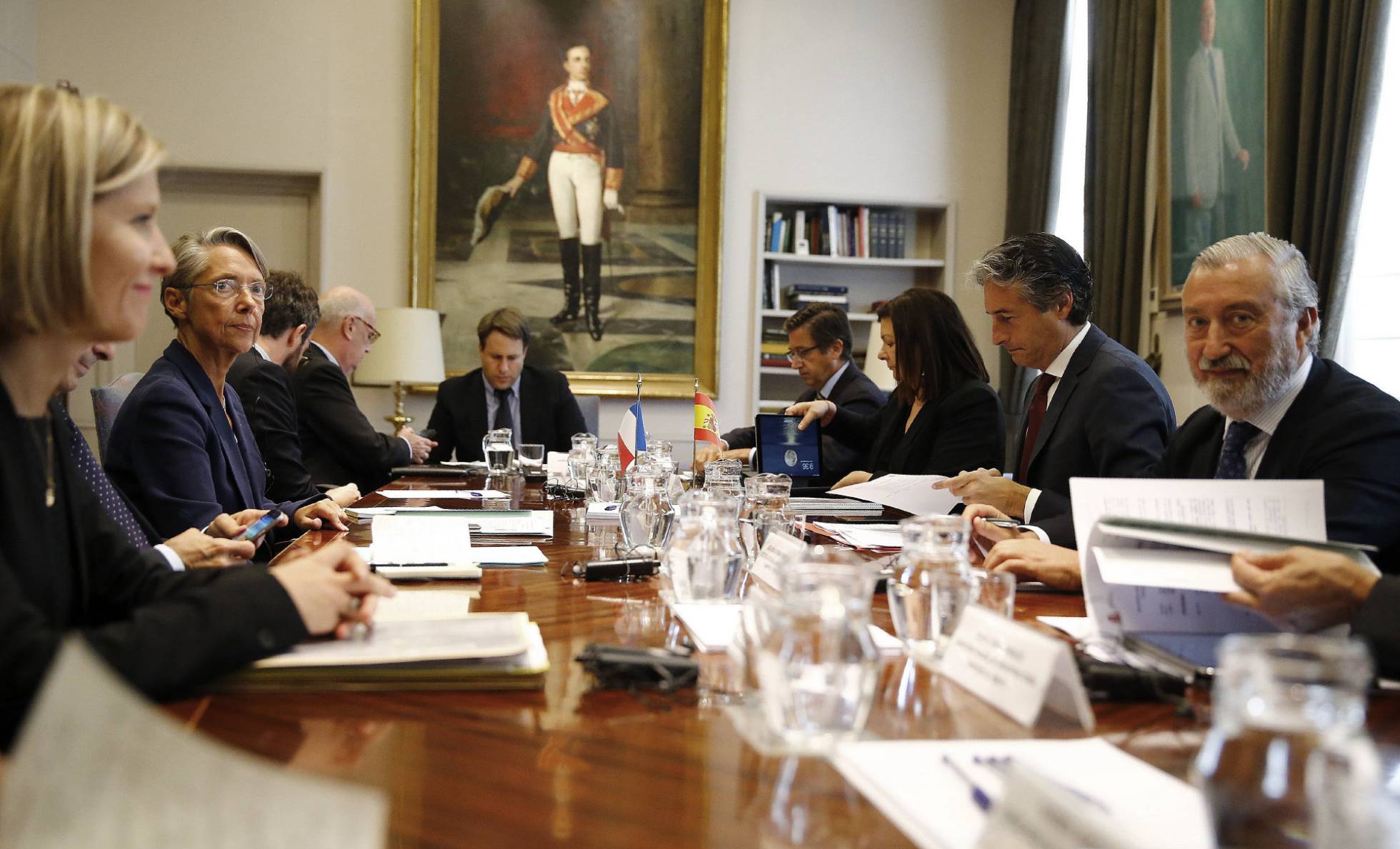The Minister of Public Works, Íñigo de la Serna, has received in Madrid the French Minister of Transport, Elisabeth Borne, with the wink of new investments in the Mediterranean railway corridor, key infrastructure for the connection of both countries. The Spanish department of public works has started the processes that will conclude with 2,000 million in works. De la Serna promised to have completed in 2023 “all high-speed networks towards the French border”, which also includes the connection between Burgos and Vitoria and the completion of the complex Basque Y node.
In the case of the Mediterranean Corridor, yesterday’s edition of the Official State Gazette (BOE) included the tender for informational studies of the new through axis of the city of Valencia, as well as the high-speed section between Valencia and Castellón. The initiative was advanced on Saturday by the Prime Minister, Mariano Rajoy, in an act of the PP in Valencian lands, such as that of the closing of the Interparliamentary of the popular. Rajoy highlighted the commitment to Valencia and with a key infrastructure for the entire Levante.
But the 2,000 million are not yet on the table. The project must go through previous phases of much less depth, bidding yesterday for the informative studies of both actions, with 551,000 euros for the north-south through axis of the arterial railway network of Valencia, and another 655,000 euros for the study information on the AVE line between Valencia and Castellón. Both engineering contracts should be awarded in the last week of November and serve as the basis for the future bidding for the works.
Fomento launched in 2011 the Mediterranean Corridor initiative with the aim of connecting Valencia and Barcelona at high speed, improving the route for goods from Andalusia to the French border, and the ports’ own accessibility to the rail network. The infrastructure provides for the construction of sections with double platforms (goods and passengers) and others in which the construction of a third thread or lane that allows mixed use will suffice. This corridor will connect, through France, with 3,500 kilometers of roads that cross European territories where 66% of the EU’s GDP is generated, according to calculations by the Valencian Association of Entrepreneurs (AVE). The 2017 budgets include 715 million for this infrastructure, on which institutions and the Valencian and Catalan governments request a schedule of works.
SOURCE: CINCODÍAS.ELPAIS.COM


